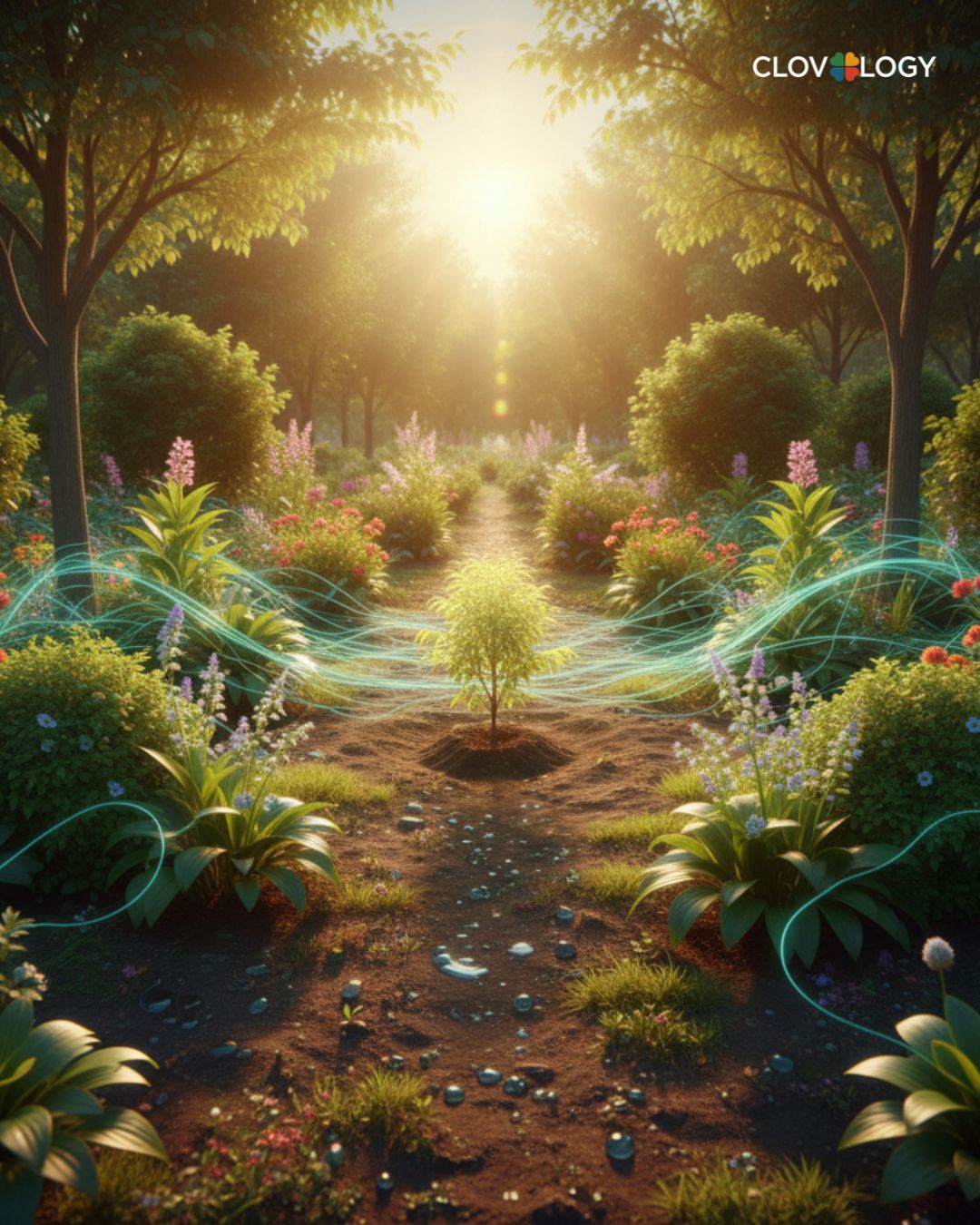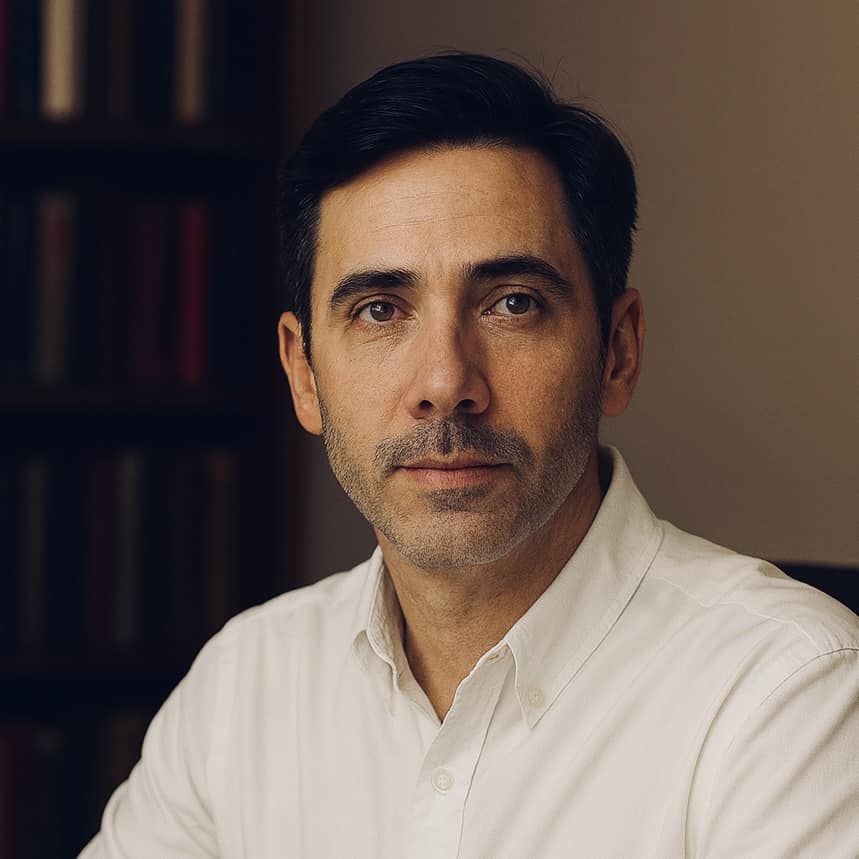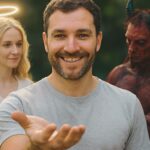At Cloverlogy, we define: health is the sustainable, available energy each person has to function, adapt, and grow, nurtured and allocated in harmony across three dimensions: physical, mental, and social. This article does not give you workouts or meal plans. It explains why an energy-based understanding is a reliable foundation for any journey toward well-being and freedom.
Why we start with energy, not just “no disease”
In real life, what you need each day is not just a clean medical record. You need alertness to drive safely, focus to do quality work, warmth to speak kindly to your partner, and calm to face the unexpected. All of these draw on a resource that is invisible yet very concrete: available energy. When energy is low, everything feels heavy. Even simple tasks like tidying the kitchen or replying to an email are hard. When energy is abundant, the same workload feels lighter and more manageable.
The idea of available emphasizes what you can actually use right now, not potential that only looks good on paper. Sustainable emphasizes the cycle of input and recovery, so this resource is not burned out after a few weeks of effort. Health, in the Cloverlogy sense, is not a solemn trophy on the wall. It is the living flow of energy you manage every day.

Energy is a budget, not a miracle
Imagine waking up each morning with an “energy account.” How you use it during the day determines the quality of your work, relationships, and mood. Every decision has a cost. Every habit compounds. When you view health as a budget, you naturally think about two things: income and expenses. Income is what nourishes you, like deep sleep, wholesome food, quiet, morning sunlight, a trustworthy hug. Expenses are what drain you, like overload, conflict, constant interruption, chronic comparison, prolonged loneliness.
This budget mindset pulls you away from two common extremes. One is the “accelerate by willpower” extreme, assuming that pushing harder automatically makes you healthier. The other is “giving up,” assuming that every form of fatigue is fate. Cloverlogy emphasizes the art of allocation. You cannot increase everything at once, but you can always allocate wisely, so you have enough energy for what matters most today and still have energy for tomorrow.
The three dimensions work together
Cloverlogy treats health as a connected system of physical, mental, and social dimensions. They do not stand like three isolated pillars. They interact like three gears. When one gear jams, the whole machine rattles. When they mesh, movement becomes smooth.
Physical is the bodily foundation. This is where energy is produced and stored at a biological level: heart and lungs, muscles, hormones, circadian rhythm, sleep, nutrition, movement. You can think of it as the body’s “main battery.” But a good battery is not enough, because energy also needs a mental operating system to allocate it.
Mental is the control center. Here, clarity of goals, quality of attention, emotional regulation, and the capacity to recover after pressure turn energy into effective action. When the mind is messy, energy leaks like water through a sieve. When the mind is clear, the same amount of energy produces many times the results.
Social is the environment where energy flows. Humans are social beings. We recharge through connection, a sense of belonging, fairness, and psychological safety. A civilized workplace, a warm family, a group of friends who truly listen, all of these are wireless chargers for health. Toxic settings do the opposite. They drain your battery faster than a night shift.

How “available” and “sustainable” differ
“Available” refers to your present state. It asks very practical questions: right now, do I have enough alertness to drive, enough patience to play with my child, enough focus to finish this report. “Sustainable” refers to your capacity to regenerate over time. How long can I maintain this pace, what routines nourish me so I do not collapse on the weekend, do my workplace and life rhythms allow me to recharge consistently.
These two ideas protect you from the illusion of “three weeks of peak performance.” Many people have felt short bursts of intensity followed by long periods of exhaustion. Cloverlogy invites a different question: how can today be good enough and tomorrow still be good. When the question changes, your way of living naturally changes.
Energy is not morality
A common mistake is to equate energy with personal virtue. When exhausted, we scold ourselves as weak or undisciplined. Cloverlogy wants to remove that label. Energy is a resource influenced by your body, your mind, and your social context. A chaotic schedule, a toxic environment, a tense relationship, all of these drain energy even in very disciplined people. Instead of self-condemnation, look at the problem as a systems question. Once you change the lens, small adjustments with big ripple effects become possible.
From the inside out
Cloverlogy’s philosophy is from the inside out. Inside means habits, self-understanding, the ability to listen to your body’s and emotions’ signals. Outside means the schedule, how you structure the day, the team setup and the rules of the environment. Sustainable health appears when both layers move together. If you only fix the outside, change becomes a short-lived campaign. If you only touch the inside, the environment often sweeps you backward. From the inside out means building a strong foundation, then designing a supportive setting where that foundation can live.
Health and freedom
Related reading, What is freedom?
Cloverlogy’s ultimate aim is freedom and happiness. By freedom we do not mean a romantic slogan. Everyday freedom is the capacity to choose what is worth doing and to do what you have chosen. Both require energy. If your battery is empty, you cannot say yes to what matters, and you also cannot say no to what does not. Health, in this light, is the capacity to execute freedom. The same is true for happiness. It does not fall from the sky. It appears when you have enough energy to be fully present with your loved ones, with your work, and with yourself.

Health is not a competition
A subtle trap is turning health into a leaderboard. Comparing step counts, waistlines, sleep scores. When health becomes a contest, energy shifts toward rivalry and anxiety. Cloverlogy does not endorse carelessness, yet we refuse to turn health into an endless race. The final measure is not whether you beat someone. It is whether you have enough energy to do what is meaningful. There are good days and not-so-good days. That is a normal rhythm of a living person.
The story of rhythm
Energy has rhythm. The body has circadian clocks. The mind has focus cycles. Relationships have seasons of closeness and distance. When you respect rhythm, you go farther with less friction. When you ignore rhythm, you pay a hidden fee called “wear and tear.” Health, in Cloverlogy’s view, does not demand constant peak. It encourages you to adjust your tempo so you have enough for the present and a path for the future. There are times to accelerate, times to step back. There is a season for plowing, a season for harvesting, and a season for rest.
Three common misunderstandings about health
First, equating health with appearance. Looks can be a signal, but they are not the whole story. Energy is not always visible. Many people look sturdy yet feel lifeless inside, and the reverse is also true.
Second, equating health with iron discipline. Discipline helps, but without kindness toward yourself it becomes a whip. When the whip appears, resistance appears, and energy leaks through guilt. Sustainability needs both discipline and kindness.
Third, believing that being healthy means you must handle everything on your own. In reality, healthy people often know how to receive support. A call to a close friend, an honest talk with your manager, asking for help at the right moment, these are the behaviors of someone who understands the energy budget.
Health and meaning
The strongest form of energy does not only come from food or movement. It also comes from meaning. When you know why you wake up early, why this work matters, why you want to be with this person, your body and mind feel fueled by another tank. Cloverlogy treats meaning as a catalyst. It does not replace rest or nutrition, but it makes every effort more soulful, lighter, and longer-lasting.

A short way to remember
If we had to compress the definition into one easy sentence, Cloverlogy would say: health is sustainable, available energy, nurtured and allocated in harmony across the physical, mental, and social dimensions, so you can function, adapt, and grow each day. The order is clear. Energy is the center, the three dimensions are the means, functioning, adapting, and growing are the outcomes. Read it slowly and you will see this is not a slogan. It is an operating diagram.
Why this view is trustworthy
First, it fits everyday experience. You do not need a medical degree to know whether you have energy. You feel it when you step out of bed, when you open the window, when you speak your first sentence of the day. Cloverlogy’s definition starts with that felt sense and connects it to the structure of the three dimensions.
Second, it provides direction. Whenever you feel lost, return to a simple question: where is my energy low, in the physical, in the mental, or in the social. That question opens a concrete path for adjustment. Once you know where the issue is, you know what to change first.
Third, it respects difference. There is no single formula for everyone. An energy-based definition lets each person move in ways that fit their body, work, culture, and season of life. You do not have to force yourself into someone else’s route. You can write your own, as long as you keep the central principle: nurture and allocate energy across the three dimensions.
Fourth, it links the individual to the community. The social dimension is not a decorative extra. It reminds us that my health is connected to our health. Workplace culture, communication norms, and kindness at home are the large switches for energy. Seeing this connection, we learn how to build environments that help one another become healthier.
A few images to remember
You can think of the physical as the power generator, the mental as the control panel, and the social as the wiring throughout a home. Electricity is generated, directed, and transmitted. If the wiring is faulty, the lights flicker even with a good generator. If the control panel is chaotic, high capacity causes overload. If the generator is weak, the whole house dims. Health is the art of tending all three so the entire home shines warm.
Or imagine a garden. The physical is soil and water, the mental is sunlight and day-night rhythm, the social is the community of plants living together. When one corner is tended well, other plants benefit. When you plant in the right place, the whole garden thrives. Health is not a lonely tree. It is an ecosystem.

An invitation from Cloverlogy
Cloverlogy does not want to turn health into a rigid rulebook. We invite you into a way of seeing. When the lens is right, even small decisions become better, and results gradually appear. You do not have to change everything in a day. Simply notice your energy budget, treat it as a precious asset, and remember that sustainability comes from harmony among the physical, mental, and social.
We believe that when energy is nourished and allocated skillfully, you gain a very practical kind of freedom. You choose what is worth doing on a busy day. You keep calm in a hard conversation. You still have gentleness left when you return home. Happiness then is no longer a distant target. It is the feeling of being fully present in your own life.
Related reading, What is happiness?
Closing
Health in the Cloverlogy sense is not a title. It is the energy to live. It is close to you because you can touch it in every moment. It is sustainable because it respects human rhythm and the links between people. It is trustworthy because it leads you along a clear path: look at energy, nurture and allocate it across the physical, mental, and social, so each day you can function, adapt, and grow. From here, the journey toward well-being and freedom is no longer vague. It begins the moment you place a hand on your heart, take a deep breath, and ask a very simple question: how will I use my energy budget today.














